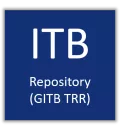
The ISA² Interoperability Test Bed is being trialled as a conformance testing solution for the Integrated Fisheries Data Management (IFDM) Programme.

The Directorate-General for Maritime Affairs and Fisheries (DG MARE) has developed solutions under the Integrated Fisheries Data Management (IFDM) Programme to enable the electronic exchange of fisheries-related data. Member States and other parties participate in an interconnected network whereby data exchanges are based on the UN/FLUX standard providing a backbone for exchanging harmonised messages for fisheries’ management and control. Based on the UN/FLUX standard, implementations have been defined to address business data flows for several domains:
- Vessel information and registration
- Vessel positioning
- Fishing activities and sales
- Fishing licenses, authorisations and permits
- Catch declarations
To ensure interoperability of the data exchanges, DG MARE foresees a conformance testing process that allows National endpoints to be tested before their integration in the live network. This is currently implemented as a standalone test suite that can be used independently by each Member State to validate the messages they produce for each supported data flow. To complement this approach DG MARE is also experimenting with an online conformance testing platform that will allow administrators to test against connected FLUX nodes and visually monitor the complete conformance testing process.
To address this need DG MARE contacted the ISA² Interoperability Test Bed team to evaluate the potential of its online conformance testing platform. This resulted in a proof of concept developed by the Test Bed team that was completed in October 2019. The proof of concept demonstrated that existing scenarios could be replicated, allowing Member States to use the configured test cases in a self-service manner with monitoring and reporting support. Moreover, the Test Bed's features allowed simplified configuration for National testers and visual validation reporting of business failures.

The next step in the process will be to elaborate the test suites in the Test Bed with the goal of offering it to Member States as a conformance testing channel. The Test Bed team will remain a close partner to DG MARE's management and technical teams throughout this process, providing support and expertise in the realisation of its conformance testing as a key interoperability enabler.
Further information on the IFDM Programme and UN/FLUX can be found in Joinup. If you are new to the Test Bed and are wondering what it could do for you, a good starting point is its value proposition with further resources available on its Joinup site. To remain updated of the latest Test Bed news:
Referenced solution



